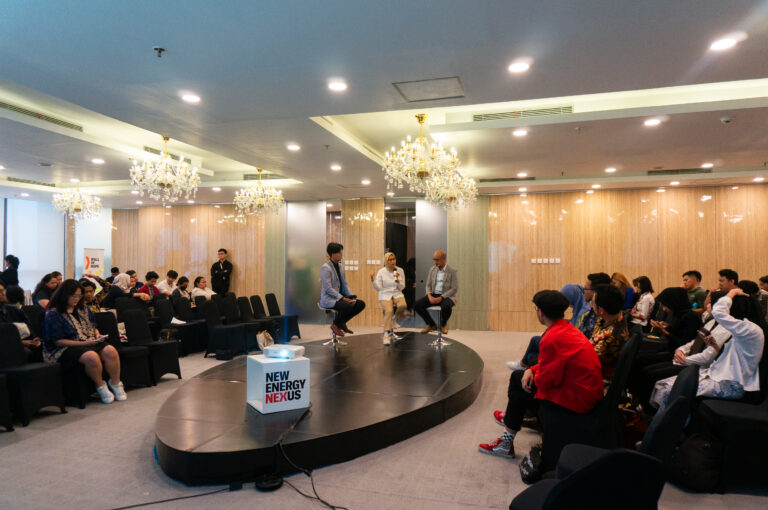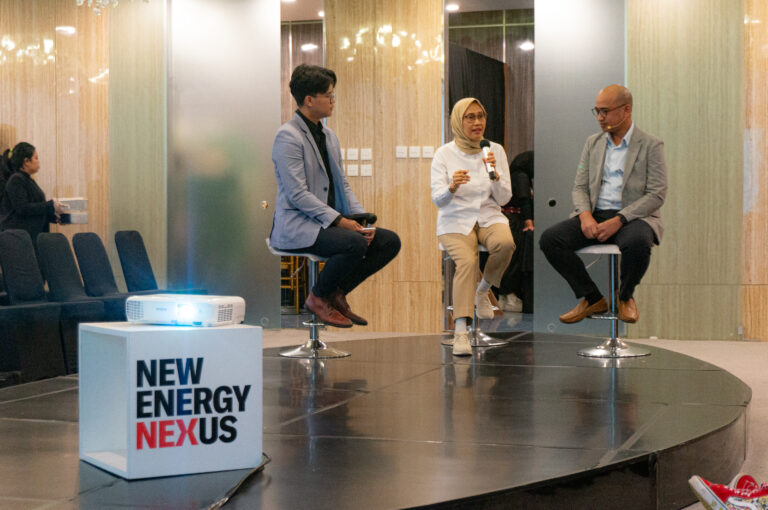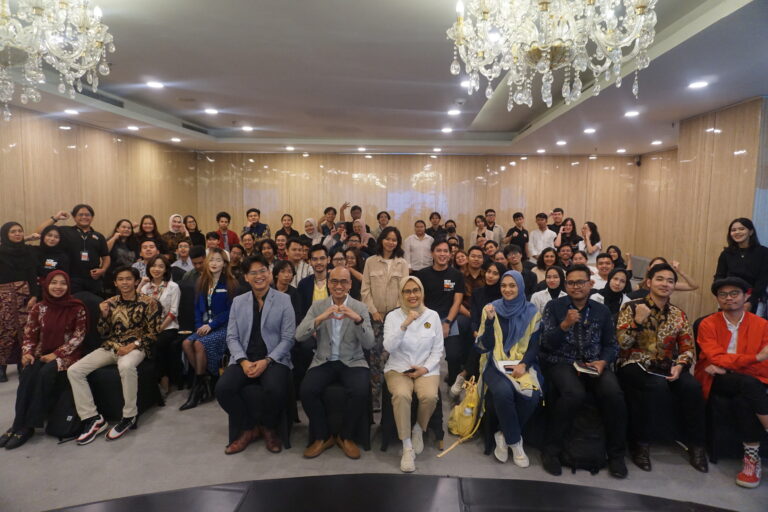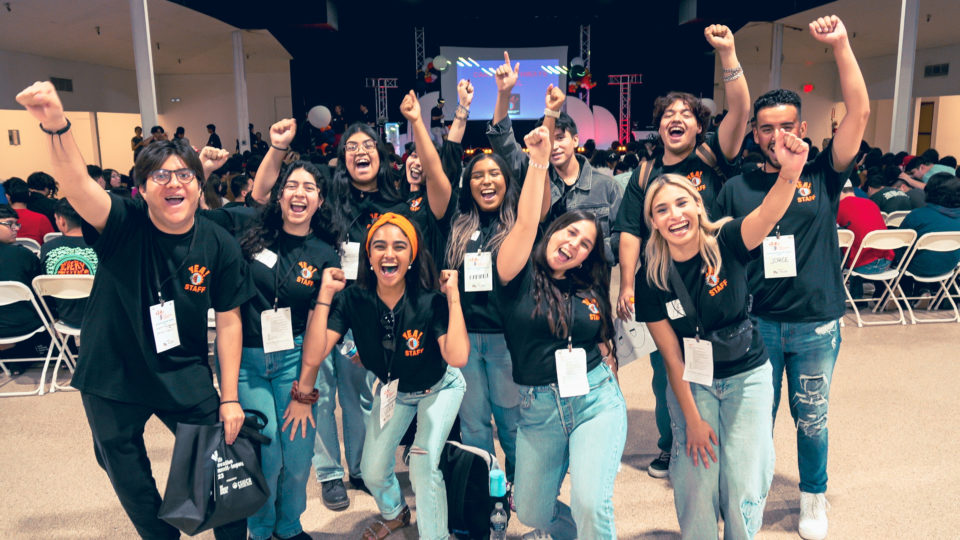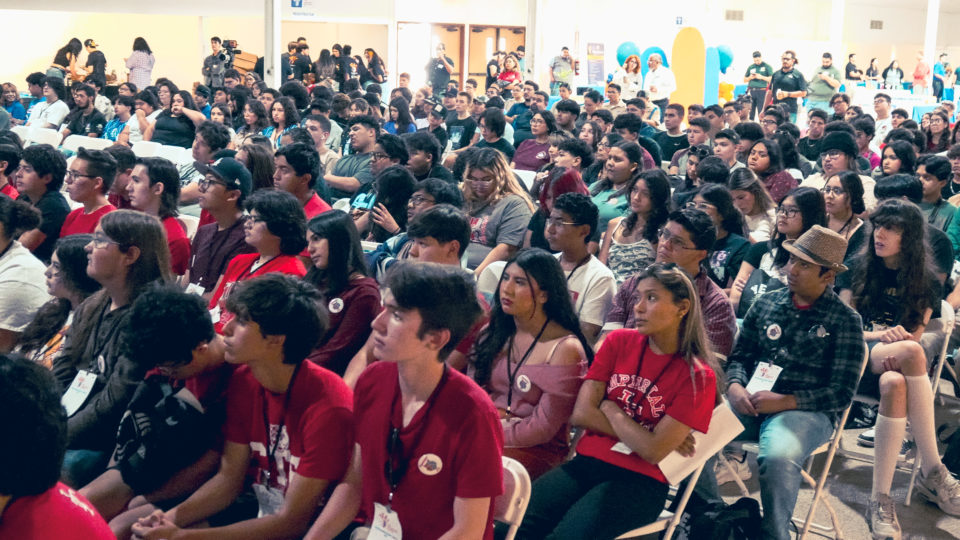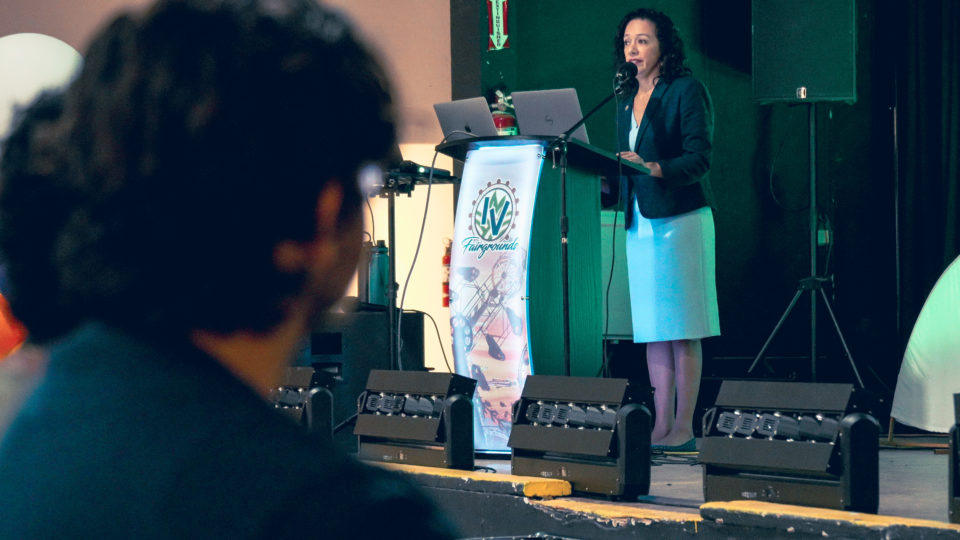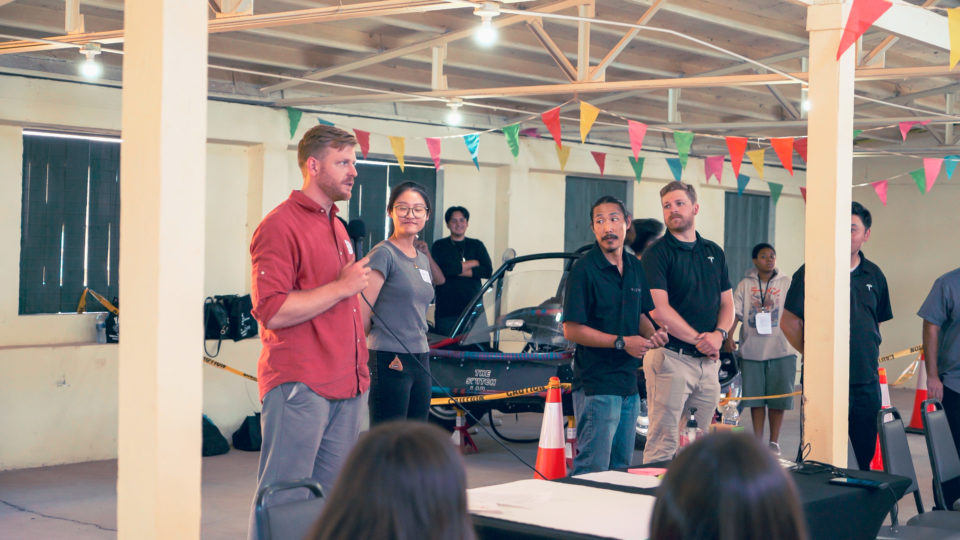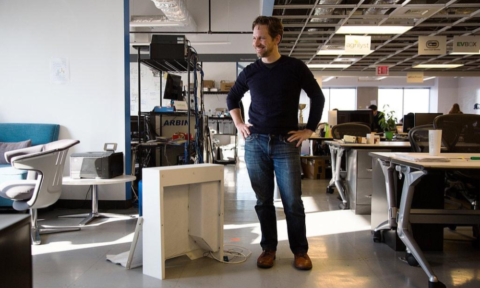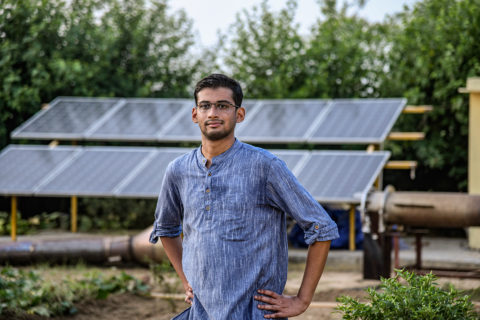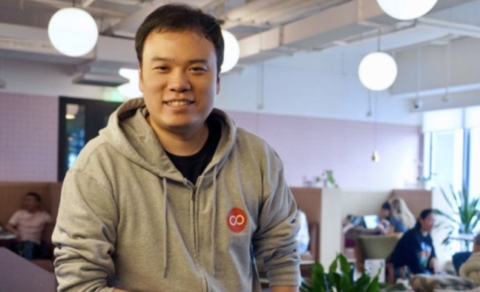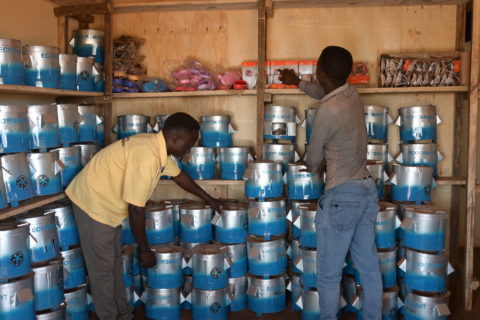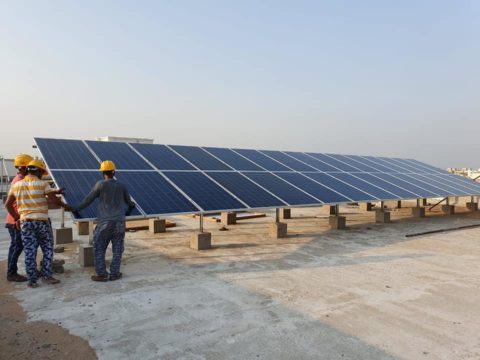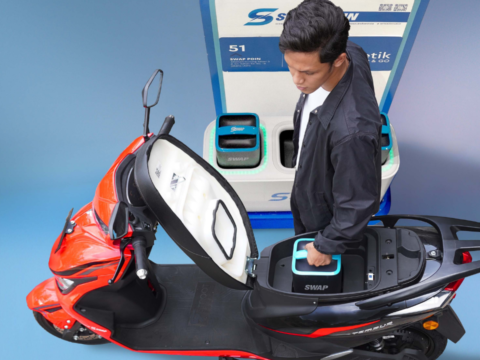We talk to clean energy business founders and management teams on a daily basis, and what we hear consistently is the struggle they have finding talent. A staggering number of green jobs will need to be created to transition whole economies to clean energy and there is a critical talent shortage across the sector. By 2030, there will be a global shortage of seven million skilled workers that would be needed for all the necessary climate and energy projects – a fact that is not lost on the startups and businesses we support. The skills shortage is the achilles heel in the clean energy transition.
While many young people – the workers of the future – want to dedicate their careers to climate action, they often find themselves without the necessary skills to pursue one, or aren’t even aware of the career pathways available to them.
Take this data point as an example: a majority of respondents to a Student Energy survey of 40,000 youth around the world found that over two-thirds think it is necessary to have a background in Science, Technology, Engineering, and Math (STEM) to work on the energy transition. However, ask any marketing professional or policy analyst working in a climate tech startup, and they’ll easily bust this myth!
Their research shows that the most common barriers respondents to the survey face in employment are lack of awareness about existing job opportunities (47.6%), lack of available entry-level positions (46.0%), and lack of access to skills training (44.9%).
LinkedIn’s own research also shows that just 1 in 20 Gen Zs globally have the skills they need to tackle the climate crisis, compared to 1 in 8 of the wider workforce.
This has big implications for the talent pipelines of clean energy businesses. So the question is: How can we create more awareness of the career pathways available in the clean energy transition? And how do we equip these youth with the skills they need to join clean energy businesses and startups, or even start their own?
At New York Climate Week 2024, we hosted a panel discussion with Student Energy and LinkedIn to answer these very questions, with a focus on youth in the Global South.
A discussion on clean energy career pathways for youth in the Global South
Cammie Erickson – Director of Social Impact, LinkedIn
Cammie opened the panel by stressing the importance of data in shaping strategies for clean energy career pathways. LinkedIn’s data reveals a passionate generation eager to work in green jobs but lacking the necessary skills and access to roles.
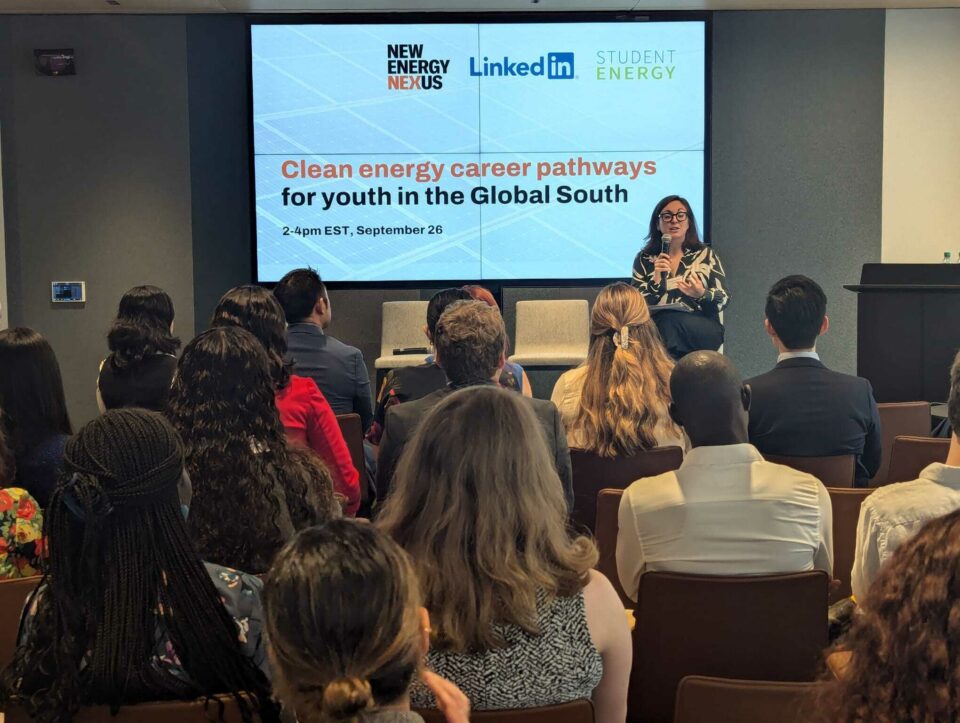
Cammie Erickson – Director of Social Impact, LinkedIn
Andrew Chang – Chief Growth Officer, New Energy Nexus
Andrew emphasized the centrality of people in a just energy transition, which is not just about technology but about fairness. He discussed opportunities in the energy transition, entrepreneurial skills, narrative-building, and how NEX creates alliances to help youth connect with value-driven solutions.
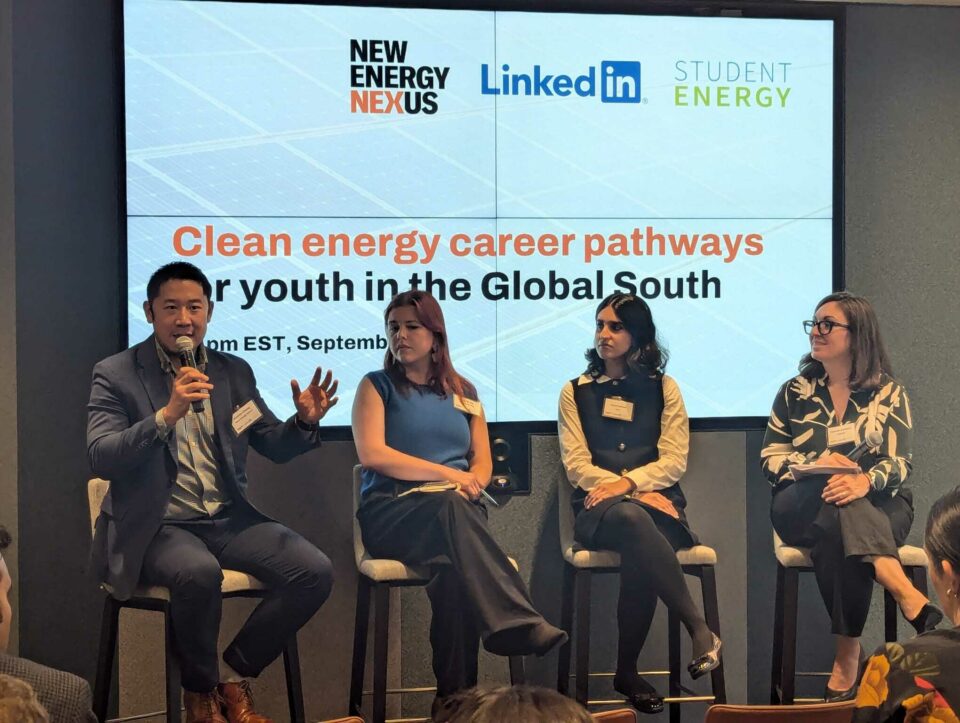
Andrew Chang – Chief Growth Officer, New Energy Nexus
Helen Watts – Executive Director, Student Energy
Helen highlighted the need for a multi-stakeholder approach, urging climate actors to rethink their business models and engage with underserved voices. She encouraged expanding partnerships, fostering dialogue between educational institutions, NGOs, and the private sector to create curricula, training, and job opportunities for youth, all while pushing for supportive government policies.
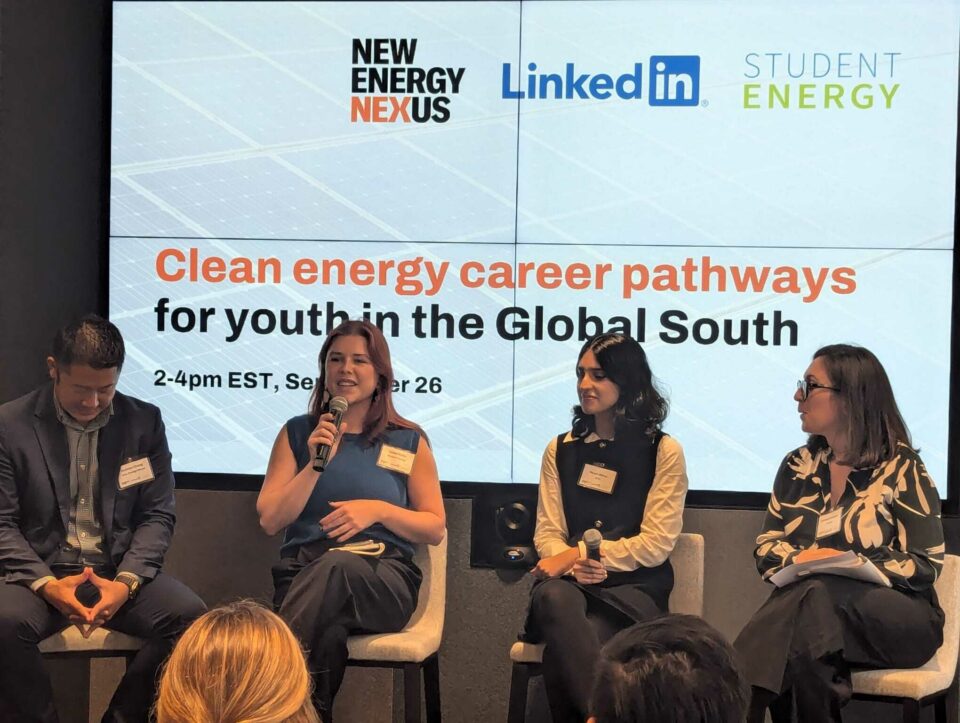
Helen Watts – Executive Director, Student Energy
Hamd Akmal – Student, NYU
Hamd shared her personal experiences of the barriers young people face, including a disconnect between available jobs and their motivations. She urged organizations to better engage youth, understand their needs, and bridge communication gaps between job seekers and employers.
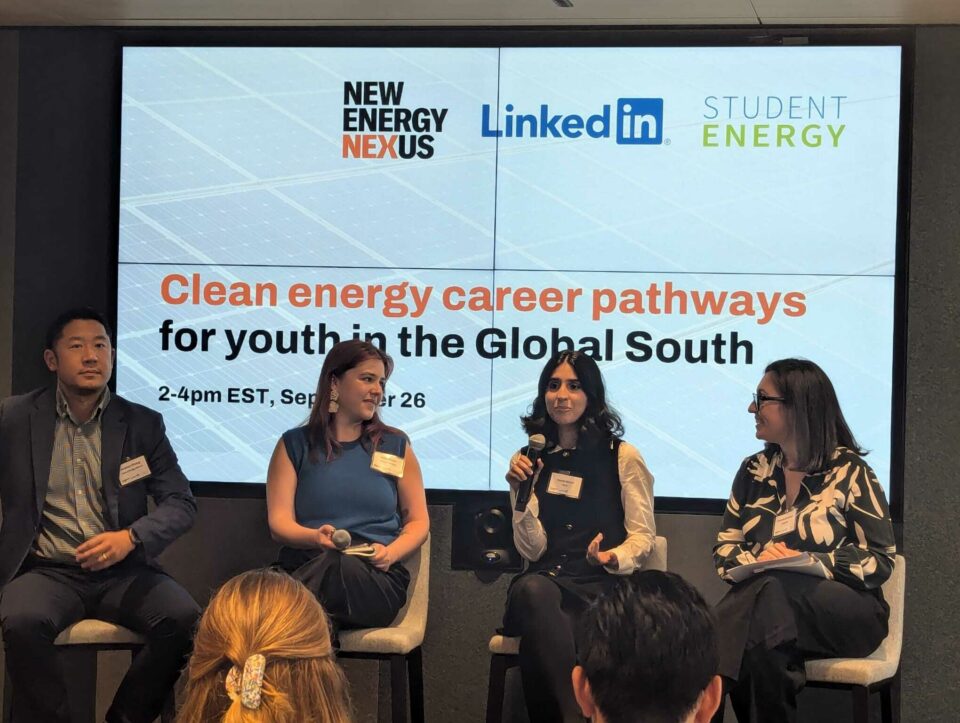
Hamd Akmal – Student, NYU
What next?
By investing in education and training, we can empower the next generation to accelerate a more equitable clean energy transition. The Student Energy and New Energy Nexus partnership is one such initiative.
We’ll pilot an internships and jobs platform that will feature opportunities from our extensive network of clean energy startups and entrepreneurs to bridge the gap between green skills, the youth workforce, and employers in the clean energy sector.
We’re already doing this in California, Indonesia, the Philippines, Uganda, and Vietnam. Watch this space as we scale up our work to support even more youth in joining the clean energy transition!
![3ge first winner of nex's indonesia [re]power energy policy hackathon 00](https://www.newenergynexus.com/wp-content/uploads/2024/09/3GE-first-winner-of-NEXs-Indonesia-REPower-Energy-Policy-Hackathon-00-400x267.jpg)
